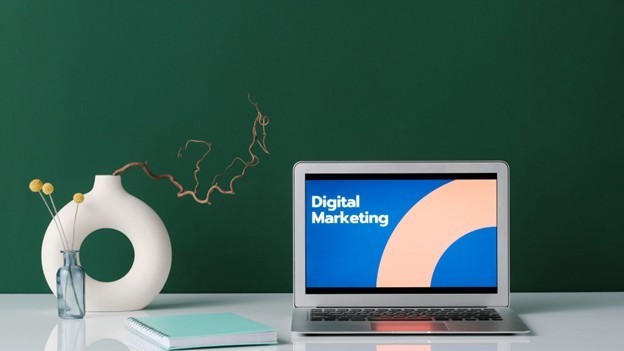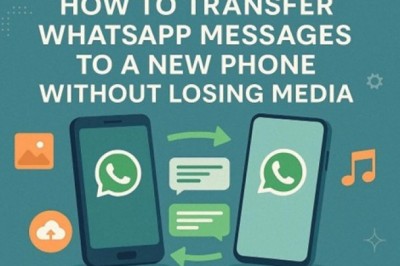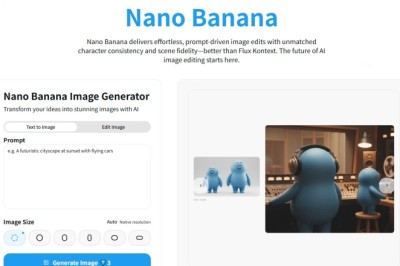views

The internet is a wonderful place to do business, but it’s also a crowded space full of competition. To stand out in this environment, you need to find ways to promote your brand and get people talking about the products and services that you offer. One way to do this is by using digital marketing strategies—and while they may seem intimidating at first glance, they don’t have to be complicated or expensive. Here are nine keys to making your digital marketing campaign a success:
1. Understanding your customers.
The first step in a successful digital marketing campaign is understanding your customers. Knowing who your target audience is and what they want from your product or service will help you create content that resonates with them.
● Who are they? Where do they live? What do they like to do in their spare time?
● What do they need from your business or product/service? How will this benefit them, personally or professionally (or both)? What problems does it solve for them?
● How can you market yourself online so that these people find out about what you have to offer--and come back again and again because of how much value it offers them?
Once you know who your customers are, it’s easier to create content that resonates with them. This means focusing on creating high-quality content that offers value and solves problems for them. It also means understanding their pain points and needs so that when they do get around to looking for help with something specific, they’ll find your business first.
2. Having a mobile-friendly website.
Website optimization is vital in an age where mobile devices dominate the web. If your website is not optimized for mobile, then you’re missing out on valuable traffic from customers who are using smartphones and tablets to search for information online. Mobile optimization also allows you to better leverage social media because people can easily share your content with their friends on these devices.
3. Creating informative, interesting blog posts.
Blogs are an integral part of digital marketing, and you should make sure that you have a blog on your website. Blog posts should be informative, interesting and relevant to your business. They should also be well-written with a clear headline that tells readers what they'll learn from reading them.
For example: If you sell jewelry, consider writing a blog post about how to choose the right diamond for an engagement ring or wedding band. You might include information about different types of diamonds (cut quality) or how much each type costs per carat size in order to help people who are shopping for these types of items make informed decisions about what type would work best for them based on their budget limitations as well as their personal preferences regarding cut quality versus carat weight/size ratio (which affects cost).
4. Using social media to promote your brand.
Social media is a great way to build awareness for your brand. It can be used to create a community around your brand and promote your products and services, as well as your blog and events.
Social media is also useful in terms of creating content that will be shared on other platforms like blogs, websites or even email newsletters. This helps spread the word about what you do while also building trust with potential customers or clients who may not have heard of you before but now know something about what it is that makes up who you are as an organization (or person).
5. Link Building.
Link building is a way of creating new links to your website. Links are important because they help search engines rank your website, but also because they show people that other people think your content is worth linking to. Link building can be done through guest blogging, social media and content marketing.
Link building is a long-term strategy as it takes time for new links to start ranking in search results or for old ones to decay (fall off) from their rankings due to changes in algorithms or updates by site owners/publishers.
6. Creating useful content that people will want to link to.
The most important thing to remember when creating content is that it should be relevant to your target audience. If you're trying to market a product for seniors, then it would make sense for the majority of your articles and blog posts to be written with older people in mind. You also want to make sure that any information provided is accurate and helpful--if there's one thing people hate more than bad ads, it's seeing misleading information on their screens.
One way this can be done is by making sure that all of your content has an easy-to-understand structure: headlines followed by paragraphs with subheadings every few sentences; bullet points listing key points at the end of each paragraph; links within the text rather than just linking words or phrases (this makes them easier for readers and search engines). This makes it easier for readers who might not have time or interest in reading an entire article thoroughly but still want some basic info from what they've skimmed through so far!
Finally (and most importantly), make sure all links lead back either directly to another page on your site - like another post/blog entry related specifically to this topic - OR somewhere else entirely unrelated except maybe similar topics/topics related tangentially through keywords searched often enough together by both parties involved that they show up together in search results. This is a great way to get people who have never been on your site before to become regular readers!
7. Understanding SEO and Analytics.
SEO is the process of optimizing your website for search engines. It includes things like making sure your site is easy to crawl, creating a clean and readable codebase, and using relevant keywords in the content. Analytics are tools that collect data about how people use your site--how much time they spend there, where they click on links (and what those links lead to), etc.
You can use both SEO and analytics together to understand how people interact with your digital marketing campaign. For example: If you notice that visitors aren't spending much time on one page of your website before leaving it behind forever (which would be bad), then maybe there's something wrong with that page!
8. Acquiring the right audience with paid search and display ads.
Targeting the right audience is essential to a successful paid search and display ad campaign.
In order to acquire the most relevant customers, it's important to know who you're trying to reach and what they need. You should also consider what your competitors are doing so that you can make informed decisions about how best to target them.
In addition, when choosing keywords for your ads, make sure they reflect the message of your brand or product as accurately as possible (for example, if "travel" is an important part of what makes up your company's mission statement). And finally: choose platforms wisely! There are plenty out there--but some might not be right for your brand's needs or goals just yet (or ever).
9. Optimizing email marketing campaigns.
Email marketing is a great way to reach your customers. It's also a cost-effective way to do so, especially if you have permission to send emails to your customers.
Make sure that you have permission from the customer first before sending them any emails. You want them to sign up for the email newsletter because they want it and not because they feel obligated or pressured into doing so by being bombarded with messages in their inboxes every day.
Your call to action should be clear and concise so that people know what they're getting themselves into when they click on one of these links (and trust me--they will!).
10. With the right tools, it’s possible to start making progress in promoting your business online.
With the right tools, it's possible to start making progress in promoting your business online. The first step is knowing what tools are available and how they can help you.
● Use the right tool for the job: The best way to make sure that you're using the best tools is by doing some research before getting started. If you don't know what type of software or service would work best for you, consider talking with someone who has experience with digital marketing campaigns so that they can recommend one or two options based on their experience with similar projects in the past (and maybe even show them some examples).
● Don't reinvent the wheel: There are many different types of software out there that can help automate parts of your digital marketing strategy--but sometimes those same features are already built into other programs like Excel or Google Sheets! Make sure that when looking at new software options, they don't duplicate anything else already available through other programs on my computer before deciding whether or not it's worth purchasing additional software licenses from another vendor just because it seems cool.
Conclusion
In the end, it's important to remember that there is no magic bullet for digital marketing. It takes time and effort to create a successful campaign, but if you follow these nine principles, you'll be on your way toward creating a brand identity that resonates with your customers and builds loyalty among potential new ones.





















Comments
0 comment